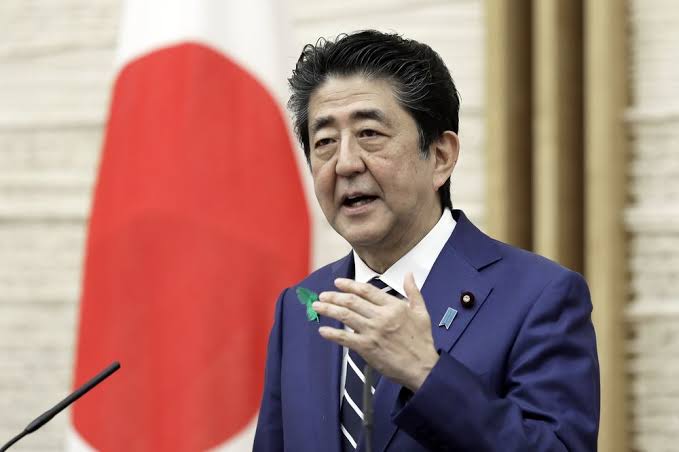Japan’s longest-serving prime minister, Shinzo Abe, announced on Friday that he would resign because of his poor health, but would stay in office until a successor is chosen, likely in September.
The 65-year-old said a condition from which he has long suffered called ulcerative colitis, which can result in painful ulcers and sores in the large intestine, worsened in mid-July and doctors had to prescribe a new intravenous medication.
After lengthy testing on Aug. 17 and Aug. 24, he said, he concluded that while the new medication appeared to be working, he didn’t feel healthy enough to govern in the middle of the coronavirus pandemic.
“I cannot continue being prime minister if I do not have the confidence that I can carry out the job entrusted to me by the people,” Abe told a news conference as he announced his decision.
“For almost eight years I controlled my chronic disease, however, this year in June I had a regular check-up and there was a sign of the disease,” he added. “I made a judgment that I should not continue my job as prime minister” said Abe. “I need to fight the disease and need to be treated.”
“I apologise from the bottom of my heart that despite all of the support from the Japanese people, I am leaving the post with one full year left in my term,” he said.
He said he wanted to avoid a political vacuum as Japan copes with the novel coronavirus, but there are challenges to be met, which is why he decided to stand down as prime minister.
It was the second time Abe has resigned as prime minister because of poor health, the first more than a decade ago.
Mr. Abe, the grandson of a prime minister, was initially elected to Parliament in 1993 after the death of his father, a former foreign minister. He first served as prime minister beginning in 2006, but stepped down after a scandal-plagued year in office.
But this time, he was doing so as the longest-serving prime minister in Japanese history, having held the job continuously since his second stint began in December 2012.
He became the country’s leader again in 2012, promising to fix its beleaguered economy and achieve his nationalist dream of amending Japan’s pacifist Constitution to allow for a full-fledged military.
After he had served nearly eight years in office, he said it was ailing health — a relapse of a bowel disease that had contributed to his previous exit in 2007 — that led him to resign.
Abe’s abrupt departure triggers a leadership battle in his Liberal Democratic Party (LDP) over the next few weeks. The winner will likely stick to Abe’s reflationary “Abenomics” policies that had mixed results in resuscitating the world’s third-largest economy.
You may be interested

PSG To Reignite Interest In Osimhen
Webby - December 21, 2024Paris Saint-Germain have contacted Napoli to discuss signing Victor Osimhen in January, according to reports in France.It is reported that…

Arteta Provides Injury Updates On Five Arsenal Players Ahead Palace Clash
Webby - December 20, 2024Arsenal manager Mikel Arteta has revealed that Declan Rice and Riccardo Calafiori are both available to be in the Gunners…

Carabao Cup: Spurs Edge Man United In Seven-Goal Thriller To Reach Semi-finals
Webby - December 19, 2024Tottenham Hotspur edged Manchester United 4-3 in the quarter-finals of the Carabao Cup on Thursday.Spurs raced to a 3-0 lead…

















![American Pastor, David Wilson Seen Eating The Box Of Woman Who Isn’t His Wife [Video]](https://onlinenigeria.com/wp-content/uploads/2019/10/american-pastor-david-wilson-seen-eating-the-box-of-woman-who-isnt-his-wife-video-150x150.jpg)








